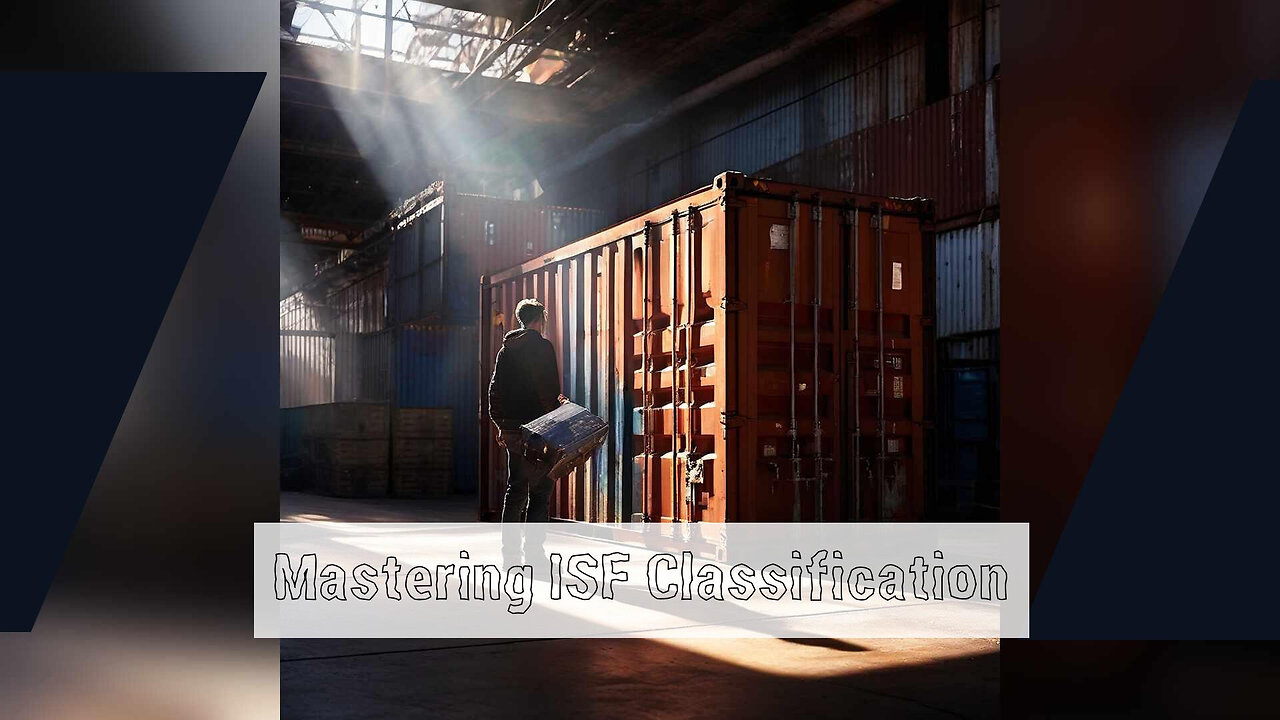Premium Only Content

Understanding the Crucial Role of Importer Security Filing in Classifying Goods
ISF Depot // 661-246-8217 // customs@isfdepot.com // www.isfdepot.com
In today's episode, we explored the crucial role of Importer Security Filing (ISF) in ensuring the accurate classification of goods. Customs brokerage, as a vital process in international trade, involves best practices and compliance measures to facilitate the smooth movement of goods across borders. Customs brokers assist importers and exporters in complying with customs regulations and import/export requirements. The ISF, also known as the 10+2 rule, was introduced by US Customs and Border Protection (CBP) to enhance supply chain security. It requires importers to submit specific information about their shipments to CBP before the goods are loaded onto the vessel destined for the United States. Accurate classification of goods is essential as it enables CBP to assess the appropriate duties, taxes, and fees, and ensures compliance with trade agreements and HS codes. Importer Security Filing supports accurate classification by providing detailed information upfront, reducing the risk of inconsistencies or errors during the customs clearance process. It also contributes to enhancing supply chain security by identifying potential risks and ensuring the safety of the supply chain. Importers must work closely with customs brokers to submit the ISF in a timely and accurate manner to avoid penalties or delays in the release of goods. Overall, the Importer Security Filing is a critical component in the customs clearance process that supports accurate classification, determines duties and taxes, and enhances supply chain security.
#usimportbond #isfcustomsbroker #uscustomsclearing #isfentry
Video Disclaimer Here: This tutorial is independent and not affiliated with any US governmental entities.
-

TimcastIRL
2 hours agoElon Secret Child Scandal ERUPTS, Ashley St. Clair Story Goes Viral w/Bethany Mandel | Timcast IRL
46.2K65 -
 2:04:52
2:04:52
Kim Iversen
5 hours agoElon's Pumping Out Babies Like They're Tesla Model 3's | EU Panics Over Peace Talks, Wants More War
56.9K47 -
 LIVE
LIVE
Man in America
7 hours agoFort Knox & Trump’s Secret Gold Move—The Financial Reset NO ONE Is Ready For?
2,367 watching -
 LIVE
LIVE
Flyover Conservatives
21 hours agoIs America Following The Footsteps of The French Revolution? - President’s Day Special - Historian Bill Federer | FOC Show
1,439 watching -
 2:21:20
2:21:20
Robert Gouveia
4 hours agoTrump Goes to SCOTUS! Judge CAVES on DOGE? Fani Willis Not Happy!
55.6K15 -
 20:41
20:41
Stephen Gardner
4 hours ago🔥You Won't BELIEVE What JUST Happened To Don Trump Jr.!!
55.6K100 -
 58:00
58:00
The StoneZONE with Roger Stone
2 hours agoEuropean Leaders Resist Trump Peace Overtures To Their Own Demise | The StoneZONE w/ Roger Stone
16.1K2 -
 9:29
9:29
AlaskanBallistics
4 hours ago $0.15 earnedWyoming Suppressors and Rifles at Shot Show 2025
17.9K2 -
 1:06:40
1:06:40
Donald Trump Jr.
8 hours agoThe Left is Taking one L After Another, Live with Michael Knowles | Triggered Ep. 217
110K93 -
 47:17
47:17
Kimberly Guilfoyle
8 hours agoWoke Gets DOGE’d, Live with AJ Rice & Jarrett Stepman | Ep. 197
94.5K39